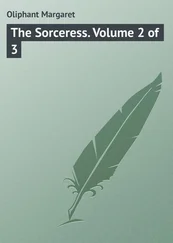Margaret Oliphant - At His Gates. Volume 2
Здесь есть возможность читать онлайн «Margaret Oliphant - At His Gates. Volume 2» — ознакомительный отрывок электронной книги совершенно бесплатно, а после прочтения отрывка купить полную версию. В некоторых случаях можно слушать аудио, скачать через торрент в формате fb2 и присутствует краткое содержание. ISBN: , Жанр: foreign_prose, на английском языке. Описание произведения, (предисловие) а так же отзывы посетителей доступны на портале библиотеки ЛибКат.
- Название:At His Gates. Volume 2
- Автор:
- Жанр:
- Год:неизвестен
- ISBN:http://www.gutenberg.org/ebooks/47619
- Рейтинг книги:3 / 5. Голосов: 1
-
Избранное:Добавить в избранное
- Отзывы:
-
Ваша оценка:
- 60
- 1
- 2
- 3
- 4
- 5
At His Gates. Volume 2: краткое содержание, описание и аннотация
Предлагаем к чтению аннотацию, описание, краткое содержание или предисловие (зависит от того, что написал сам автор книги «At His Gates. Volume 2»). Если вы не нашли необходимую информацию о книге — напишите в комментариях, мы постараемся отыскать её.
At His Gates. Volume 2 — читать онлайн ознакомительный отрывок
Ниже представлен текст книги, разбитый по страницам. Система сохранения места последней прочитанной страницы, позволяет с удобством читать онлайн бесплатно книгу «At His Gates. Volume 2», без необходимости каждый раз заново искать на чём Вы остановились. Поставьте закладку, и сможете в любой момент перейти на страницу, на которой закончили чтение.
Интервал:
Закладка:
'On Tuesday?' Helen repeated, in her great surprise looking at him. She ran over Tuesday's proceedings in her mind; at first in vain, and then a little flush came over her face. 'Ah,' she said, 'it was you who came with – Mr Golden. I remember now.'
'But I shall never be with him again,' said the youth with energy, which brought the responsive blood to his cheeks. 'Of that you may be sure. I am Cyril Rivers. I am not much good now, but I might be – afterwards. Will you remember me? Will you let me serve you if ever I can?'
'Thanks,' said Helen, putting out her hand, with a sudden softness in her voice.
The lad was young, romantic, chivalrous. She was to him like some majestic dethroned queen in her sorrow and wronged estate. He stooped down, and touched her white fingers with his lips, and then, without looking round, turned, and went away. His impulsive generous words, his fanciful pledge of eagerness to help her, went to Helen's heart. She had not expected this, and it surprised and touched her. She was not conscious for a moment of her visitor's steady, investigating glance.
'What a romantic boy!' said Mrs Burton, with a smile.
'Yes,' said Helen, and she called herself back with an effort. 'But romance sometimes does one good. It is a surprise at least.'
'At that age it does not matter much. I did not know you knew the Riverses,' said Mrs Burton. 'This is the eldest son, to be sure; but since the late misfortune they are quite poor. They have not much in their power.'
She said this with a charitable motive. It seemed to her as if Helen must mean something by it. Everybody appeared to mean something in the eyes of this philosopher. And she was a little moved by the misfortunes of the woman beside her. She thought it was kind to warn her not to waste her efforts. Helen, on her side, did not know in the least what Mrs Burton meant; did not suppose she meant anything indeed, and sat patient, accepting this speech with the others as an effort to make conversation, not ungrateful to Mrs Burton, but wondering when she would go away.
Meanwhile Cyril Rivers hastened out full of emotion. He took the wrong turn in going out, and before he knew, found himself in the garden, where the two girls were 'making acquaintance,' as Mrs Burton had bidden them do. Clara was big and fair, with her father's full form, and a beautiful complexion, the greatest possible contrast to little Norah, with her light figure, and faint rose tints. But Norah at this moment was flushed and angry, looking as her mother had done that memorable evening at St Mary's Road.
'Oh, do come here, Mr Rivers,' said Clara, 'Norah is so cross. I only said what papa says so often – that it would be wretched to live in the country without a carriage or a pony or anything. Don't you think so too?'
Norah flushed more deeply than ever. 'I am not cross. We did not come to live in the country for pleasure, and what does it matter to us about carriages and ponies? We are poor.'
'And so am I,' said the boy, with that instinctive adoption of 'our side' which Norah had attributed to him. He thought how pretty she was as she lifted her brown eyes. What a pretty child! and he was approaching twenty, a man, and his heart yearned over the helpless and sorrowful. 'I shall have to sell my horses and go afoot; but I don't think I shall be wretched. Everybody cannot be rich like Mr Burton, you know.'
'But you are always Lord Rivers's son,' said Clara. 'You can have what you like everywhere. I think it is very cross of Norah not to care.'
And Mr Burton's daughter, foiled in her first attempt to secure her own cousin's envy and admiration, looked as if she would like to cry. Young Rivers laughed as he went away at her discomfiture. As he turned to find the right way of exit, he looked back upon them with an unconscious comparison. He did not know or think what was Norah Drummond's descent. He took her unconsciously as the type of a higher class impoverished but not fallen, beside that small representative of the nouveaux riches . And all his sympathies were on the side of the former. He pulled a little white rosebud from a tree as he passed, and put it in his coat with a meaning which was partly real and partly fantastic. They were poor, they were injured, and wronged, and in trouble. He put their colours, as it were, in his helmet. Foolish boy, full of romance and nonsense! one day or other in their cause he felt he might couch his lance.
CHAPTER III
The next day after Mrs Burton's carriage had been seen at Helen's door a great many people called on Mrs Drummond – all 'the nicest people' – some who had known her or known about her in the old days, some who came because she was Mr Burton's cousin, and some who took that means of showing their sympathy. The door was besieged; and Susan, half-flattered by the importance of her position, half-alarmed lest this might be a commencement of the system of putting upon which she dreaded, brought in the cards, gingerly holding them in a hand which she had wrapped up in her apron, and giving a little sketch of the persons represented. There was the doctor's wife, and the major's lady, and Mrs Ashurst from the Row, and 'them London folks,' all of whom were sensible enough to make their advances solely in this way. Mrs Dalton was the only person admitted. Helen was too well brought up, she had too much sense of the proprieties of her position, to shut her door against the clergyman's wife – who brought her husband's card, and explained that he would have come too but for the fear of intruding too early.
'But I hope you will let us see you,' the kind woman added. 'We are such near neighbours. My eldest little girl is the same age as yours. I think we should understand each other. And I have such a busy life – to be able to run across and talk things over now and then would be such a comfort to me.'
'You mean it would be a comfort to me,' said Helen, 'the sight of a kind face.'
'And Norah will come and see my Mary. They can take their walks together, and amuse each other. It is such a pleasure to me,' said Mrs Dalton, 'to look across at these windows, and think that you are here.' She had said so much with the amiable power of make-believe, not exactly deception, which an affectionate temper and her position as clergy-woman made natural to her – when she caught Helen's eye, and nature suddenly had the mastery. 'Oh, Mrs Drummond, how I babble! I am so sorry, so sorry!' she said, and her eyes ran over with tears, though Helen did not weep. It is not easy to repel such a visitor. They grew friends at that first interview, while Norah stood by and made her observations too.
'May I go and see Mary?' she asked, when Mrs Dalton had gone. 'I think I shall like her better than Clara Burton. How funny it must be to have so many brothers and sisters, mamma; and I who never had either a brother or a sister! I should like to have had just one – a little sister with blue eyes. But, then, if you had been very fond of her, fonder than of me, I should not have liked that. Perhaps, on the whole, a brother would have been the best. A boy is a change – they are useless, and yet they are nice – for a long walk, for instance. I wish I had had a big brother, older than me – quite old – almost grown up. How funny it would have been! I wonder what we should have called him. If he had been as big as – Mr Rivers, for instance – that would have been nice for you too.'
Helen smiled, and let the child run on. It was the music to which her life was set. Norah's monologue accompanied everything. Sometimes, indeed, an answer was necessary, which interrupted the strain, but generally a word, a smile, or a monosyllable was enough. She went on weaving her big brother out of her imagination; it was more delightful than speculating about Mary Dalton.
Читать дальшеИнтервал:
Закладка:
Похожие книги на «At His Gates. Volume 2»
Представляем Вашему вниманию похожие книги на «At His Gates. Volume 2» списком для выбора. Мы отобрали схожую по названию и смыслу литературу в надежде предоставить читателям больше вариантов отыскать новые, интересные, ещё непрочитанные произведения.
Обсуждение, отзывы о книге «At His Gates. Volume 2» и просто собственные мнения читателей. Оставьте ваши комментарии, напишите, что Вы думаете о произведении, его смысле или главных героях. Укажите что конкретно понравилось, а что нет, и почему Вы так считаете.












